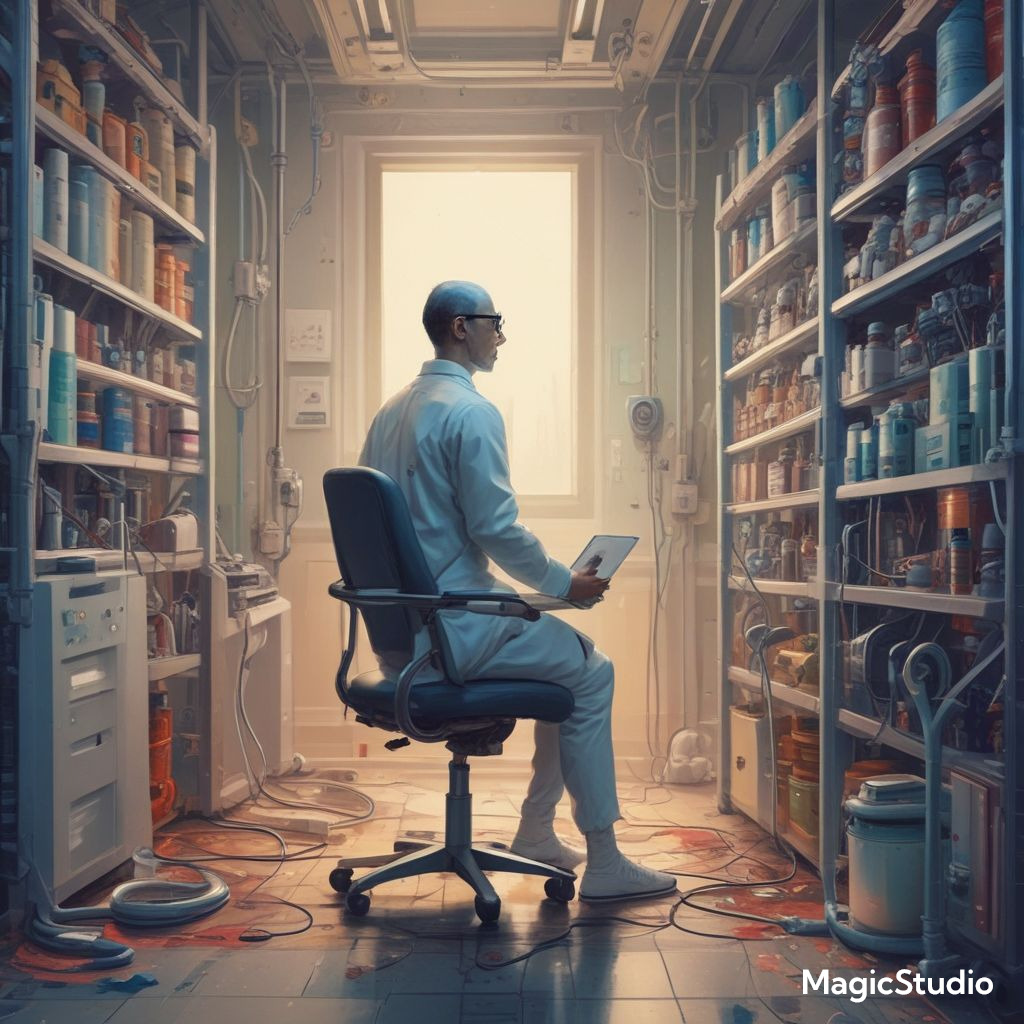How AI and Machine Learning are Revolutionizing Healthcare in 2025

Artificial Intelligence (AI) and Machine Learning (ML) are no longer just buzzwords in the technology world—they’re transforming industries, particularly healthcare. As we approach 2025, these innovations are set to redefine how we diagnose, treat, and manage health conditions. In this post, we’ll explore the role AI and ML are playing in the healthcare sector and what we can expect in the near future.
1. Personalized Healthcare with AI
One of the most exciting advancements in healthcare powered by AI is the ability to offer personalized treatments based on an individual’s genetic makeup, lifestyle, and medical history.
What to expect:
- Tailored Treatment Plans: AI will help doctors develop more accurate and customized treatment plans for patients, using data analysis to determine the best course of action.
- Predictive Healthcare: AI models can predict health risks based on genetic data, lifestyle choices, and environmental factors, allowing patients to take preventive measures before conditions arise.
Why it matters: Personalized healthcare ensures more effective treatments and a higher quality of life. AI allows healthcare providers to move beyond the “one-size-fits-all” approach and offer solutions that are tailored to individual patients, improving overall health outcomes.
2. AI-Driven Diagnostics: Faster and More Accurate
AI is improving diagnostic accuracy by analyzing medical data faster and with greater precision than human doctors. In 2025, AI-driven diagnostic tools will become more widespread and advanced.
What to expect:
- Faster Image Recognition: AI algorithms will be able to analyze medical images, such as X-rays, MRIs, and CT scans, in seconds, detecting issues that may take doctors much longer to identify.
- Early Detection: AI will assist in the early detection of conditions like cancer, heart disease, and neurological disorders, leading to earlier interventions and better patient outcomes.
Why it matters: Faster and more accurate diagnostics will save lives and reduce the time and cost associated with misdiagnoses. AI tools can also assist doctors in detecting complex conditions that might be difficult to spot with the naked eye.
3. Virtual Health Assistants for Patients and Providers
Virtual health assistants, powered by AI, are becoming common in healthcare settings. These assistants help both patients and healthcare providers by offering real-time, actionable insights.
What to expect:
- 24/7 Patient Support: Virtual assistants will help patients manage chronic conditions, book appointments, and get advice about medications or lifestyle changes.
- Healthcare Provider Assistance: AI-driven assistants can help healthcare professionals by analyzing patient data, offering treatment suggestions, and improving workflow efficiency.
Why it matters: Virtual assistants can bridge the gap between patients and healthcare providers, making healthcare more accessible and efficient. Patients will be able to monitor their health and receive guidance anytime, while doctors can streamline their practices and focus on patient care.
4. AI-Powered Drug Development
The process of discovering and developing new drugs is complex and time-consuming. AI is speeding up this process by analyzing large datasets to predict how different compounds will behave in the human body.
What to expect:
- Faster Drug Discovery: AI algorithms will be able to analyze biological data, identify potential drug candidates, and predict their effectiveness much faster than traditional methods.
- Reduced Costs: By streamlining the drug development process, AI will help lower the overall costs of creating new medications, making healthcare more affordable in the long term.
Why it matters: AI’s impact on drug development will lead to faster breakthroughs, particularly for rare or complex diseases. It will also make treatments more accessible and affordable to a broader population.
5. Wearable Technology and AI Integration
Wearable devices are becoming an essential part of healthcare, helping individuals monitor their health in real-time. As AI is integrated into these devices, they will become even smarter.
What to expect:
- Real-Time Health Monitoring: Wearables will not only track steps and calories but also measure vital signs like blood pressure, heart rate, and glucose levels, sending alerts to users and doctors if any abnormalities are detected.
- AI-Powered Health Predictions: These wearables will use AI to predict potential health issues before they become serious, offering preventive advice to users.
Why it matters: Wearable technology is empowering individuals to take control of their health by providing constant feedback. When combined with AI, these devices will not only detect problems early but also help patients manage their conditions proactively.
6. Robotic Surgery and Precision Medicine
Robotics, combined with AI, is enhancing surgical procedures by providing higher precision and control. In 2025, robotic surgeries will be more advanced, making procedures safer and less invasive.
What to expect:
- More Precise Surgeries: AI-powered robotic systems will assist surgeons in performing delicate operations with greater accuracy, reducing human error.
- Faster Recovery: Minimally invasive robotic surgery can result in quicker recovery times for patients, allowing them to return to their normal lives sooner.
Why it matters: Robotic surgery will not only improve outcomes for patients but also reduce the strain on healthcare systems by shortening recovery times and minimizing complications.
7. AI and Ethics: Striking a Balance
As AI continues to play a larger role in healthcare, the ethical implications will become more pronounced. Ensuring patient privacy, data security, and unbiased AI decision-making will be crucial challenges for the industry.
What to expect:
- AI Transparency: There will be efforts to make AI algorithms more transparent and explainable, so patients and doctors can understand how decisions are being made.
- Stronger Data Security: Healthcare providers will focus on ensuring that AI systems comply with data protection regulations, keeping patient information safe from cyber threats.
Why it matters: Ethical considerations will be paramount as AI becomes more involved in healthcare. Ensuring that these technologies are used responsibly will build trust between healthcare providers and patients, ultimately improving patient care.
Conclusion: AI’s Transformative Impact on Healthcare
The combination of AI, machine learning, and healthcare is set to change the way we approach medical treatment, patient care, and health management. By 2025, AI will have revolutionized diagnostics, personalized treatments, drug development, and patient monitoring. While the promise of AI in healthcare is vast, it’s essential to strike a balance between technological innovation and ethical considerations to ensure the responsible use of these technologies.
As we move forward, AI will undoubtedly play a crucial role in shaping the future of healthcare, making it more efficient, affordable, and accessible for everyone.



